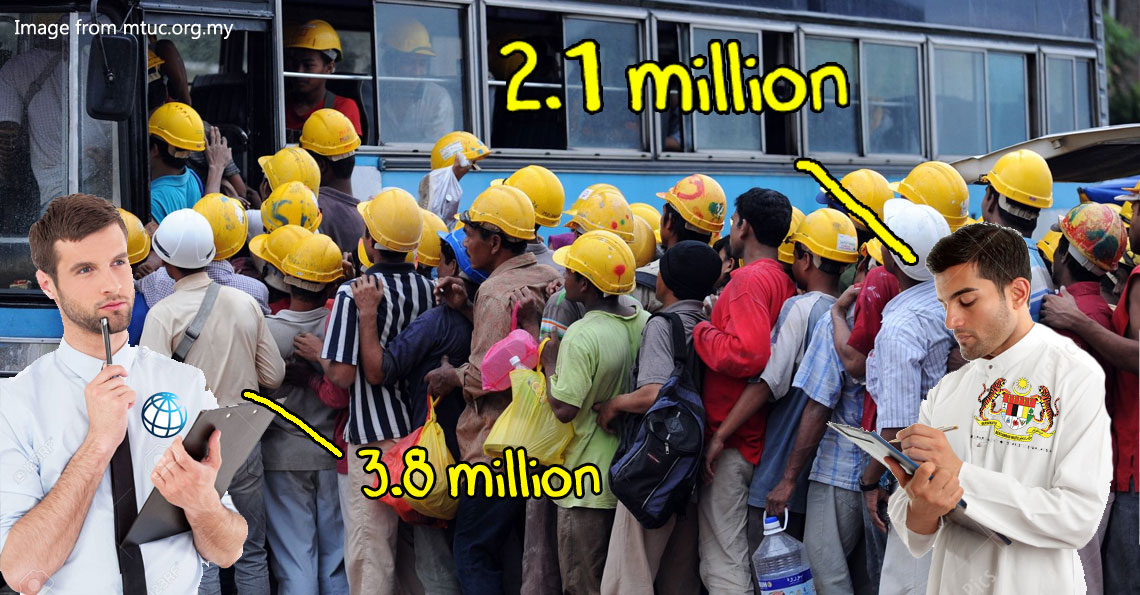The govt may ban foreign workers coming to M’sia… but what about those already here?
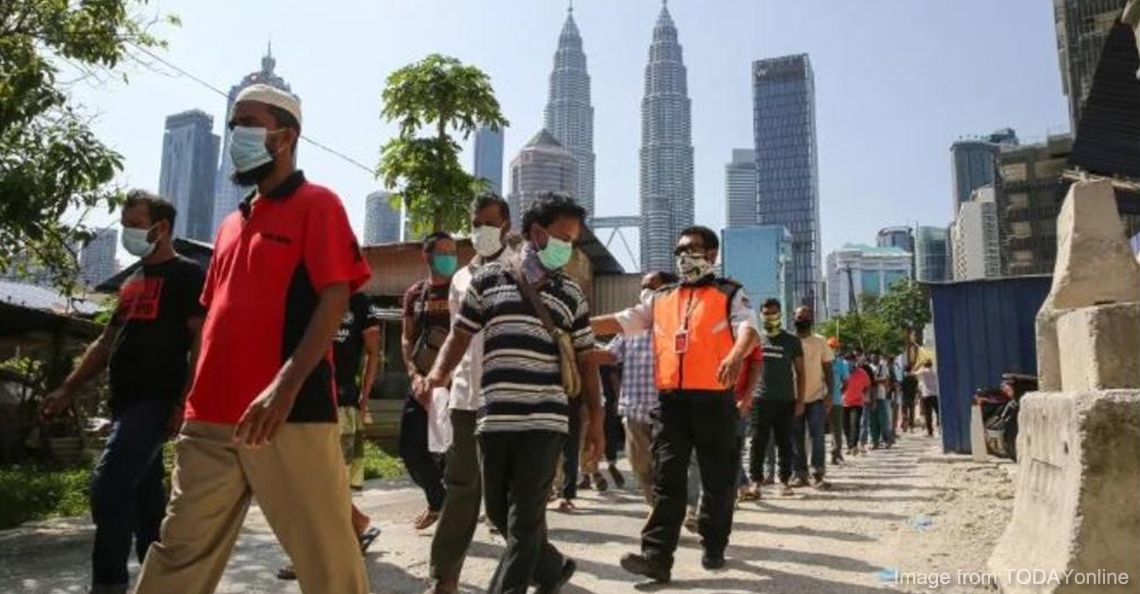
- 1.2KShares
- Facebook1.2K
- Twitter1
- LinkedIn3
- Email4
- WhatsApp14
[UPDATE: 17 July 2020] We’re updating this article to correct a mistake made by this writer for attributing the Malay Mail instead of the original report from BERNAMA. We apologise for the mistake made in this article. #ihatecilisos Updates in the article can be seen in blue. [END OF UPDATE]
So, the global pandemic may not have been a blessing to some. Heck, some of y’all are not even gonna miss the movement control order (we’ve written about this and you can read it here). But this isn’t only felt by locals la.
As it turns out, foreign workers are facing similar (if not worse) problems like us too, especially when it comes to job security and financial worries. The most obvious case can be seen when traders at the Selayang wet market were instructed to stop hiring foreign workers after the recent outbreak.
And this is just the start to a whole other thing. Just recently, the govt has decided to freeze the intake of foreign workers till the end of the year.
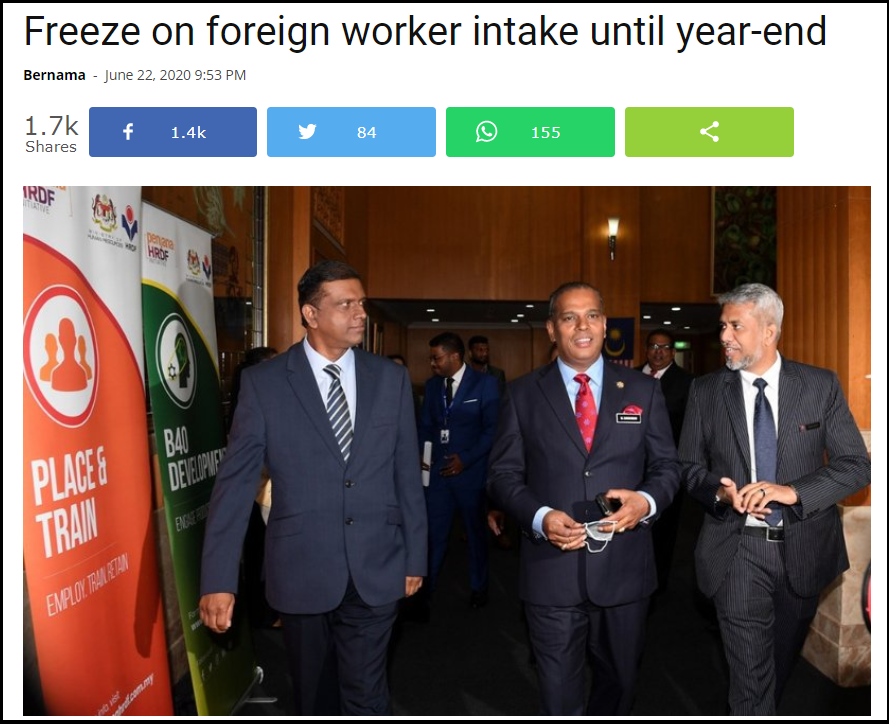
According to the Human Resources Minister, M Saravanan, this move is taken to give priority to locals to fill up these vacancies.
“We will not allow (new) foreign workers until year-end. They (foreigners) can come as tourists, if they are allowed.” – Saravanan, as quoted by FMT.
Chup, if the govt is implementing this freeze, then what is gonna happen to the foreign workers who are stuck in the country? And does the govt have any plans for them considering how they’re not allowed to work with their current employers?
Well, although Saravanan did NOT really address what’s gonna happen to those who are stuck in Malaysia…
The Home Ministry wanted to legalise the hiring of… ILLEGAL foreigners?!
As mentioned earlier in the intro, the govt has recently decided to freeze the intake of new foreign workers. Just to give ugaiz a clearer picture of how this works, let’s take a quick look at how Malaysia started depending on foreign workers in the first place.
So back in the 1970s, foreign workers were mainly hired in rural plantation and construction sectors. But this somewhat changed in the 80s thanks to Malaysia’s industrialisation programme. Under this programme, many local workers migrated from rural to urban areas to work in factories. The labour cost was low but it was okay at that time considering how the cost of living was bearable too.
However, as the economy grew, so did the cost of living. And because of that, locals look for higher-paying jobs and left their factory jobs. This was what sparked the employment and dependency of Malaysia on foreign workers – documented and undocumented – up til today
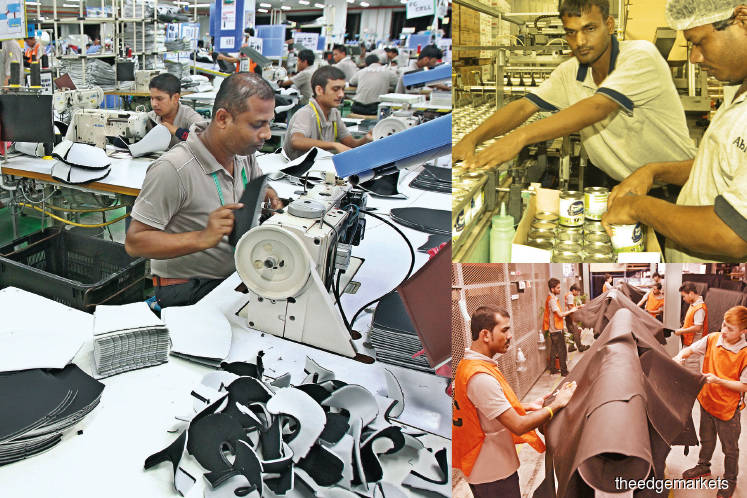
The dependency on foreign workers have been a problem since then considering how we’ve been receiving more foreign workers every year. As of August 2019, there are about two million of documented foreign workers in Malaysia.
Having said that, the current govt isn’t exactly the first to come up with a move to reduce dependency on foreign workers and open up job opportunities to locals. Previously, the govt has done quite a number of things from implementing wage subsidies for local employees and employers to stop taking new foreign workers from Bangladesh (tho this is for a different reason which we’ll be explaining in a bit).
However, this time around, the govt isn’t only gonna freeze the new intake of foreign workers in Malaysia. As it turns out, the Home Ministry is proposing to allow employers to hire undocumented foreigners. The ministry claimed that this move would help reduce the number of illegal foreigners in the country’s detention centres.
“The move will address the issue of employing foreigners without valid permits. However, only those who are caught living and working in Malaysia illegally can be employed, not those with criminal records.” – Home Minister Datuk Seri Hamzah Zainuddin, an excerpt from The Star.
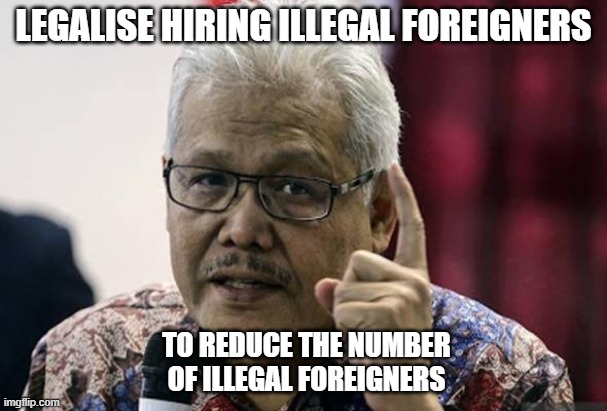
If this proposal were to jalan, it would mean 17,226 undocumented foreigners would be hired on top of the existing 2.2 million documented foreign workers in Malaysia but we may wanna keep in mind how this is just a proposal that has yet to be confirmed. In fact, Hamzah recently u-turned his ministry’s proposal by saying that the govt won’t be lenient towards illegal foreigners in Malaysia.
Besides the Home Ministry, the Deputy Federal Territories Minister, Datuk Seri Dr Edmund R. Santhara Kumar, claimed that the Special Cabinet Committee on migrant workers will be addressing the issues faced by foreign workers. The issues he meant include foreign worker’s permits.
“We will look at how to help those who should be helped, at how to find them new employers and such. This is so we can hire the ones in Malaysia instead of recruiting new workers (from abroad).” – Edmund as quoted by NST.
This comes after several groups voiced their disagreement with the Home Ministry’s plans. The Malaysian Trades Union Congress (MTUC) claimed that the proposal is counterproductive to what the Human Resources Ministry is tryna do. Meanwhile, the Malaysian Employers Federation (MEF) discourages employers from hiring illegal foreign workers and urges the govt to repatriate them instead of prosecuting them in Malaysia.
Okay, so we kinda get the gist of what the govt potentially plans to do for the foreign workers la. But, in the meantime, what about the foreign workers themselves?
Foreign workers in Malaysia have been hit hard by the MCO
See, when the MCO started and tightened, many industries were forced to close. And this includes industries that involved documented foreign workers such as construction and plantation. When this happens, these workers are not paid for work (duh) and they eventually end up without money to pay for rent (if their houses are not provided by their employers) or even get food.
So, how do they survive? Well, they kinda had to borrow money from their families and friends (yea, from back home) or even employers.
While we were working on this story, we came across another piece by the BERNAMA Malay Mail about Kamal, a Bangladeshi worker who used to work at the Petaling Jaya Old Town wet market. He lost his job after traders at the wet market were given a notice not to hire foreign workers even when the market reopens.
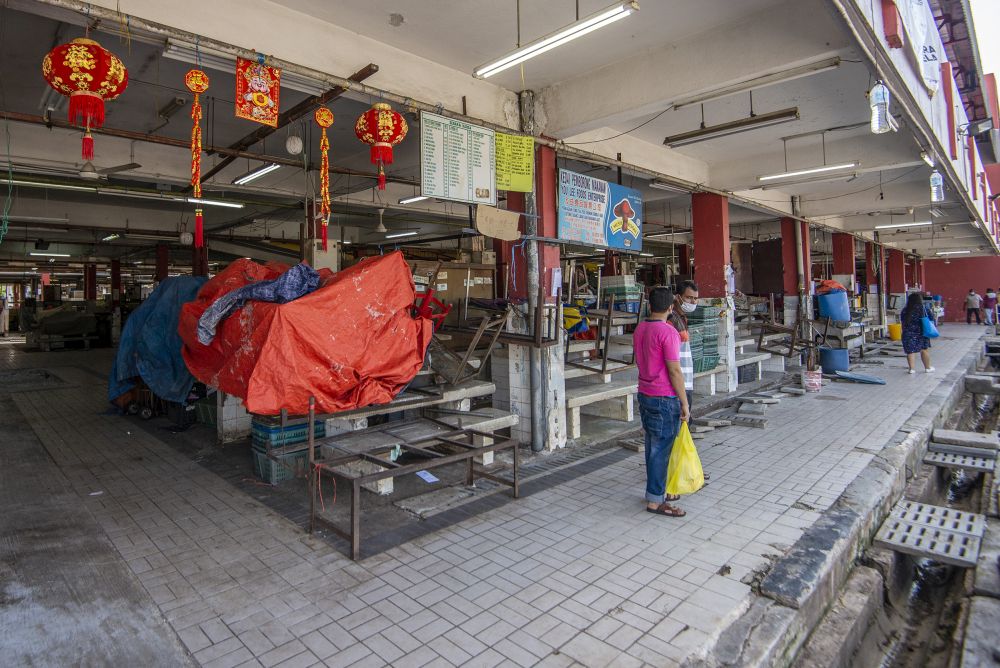
Normally, he would earn RM1,800 per month. Out of that amount, he’d save RM800 for expenses here and send the rest of the money to his family. But now, he had to call his father in Bangladesh to ask for money.
But not everyone is fortunate enough like Kamal. Another migrant worker, Nuraalam, shared that his family had to borrow money from other people for him.
“My family had to borrow the money they sent me.” – Nuraalam, as quoted by BERNAMA
.
Some foreign workers are fortunate to be able to borrow money from their employers but, for most of them all around Malaysia, the global pandemic meant that they had no pay and food. Well, at least, this is based on what Bangladeshi migrant community leader Abu Hayat observed la.
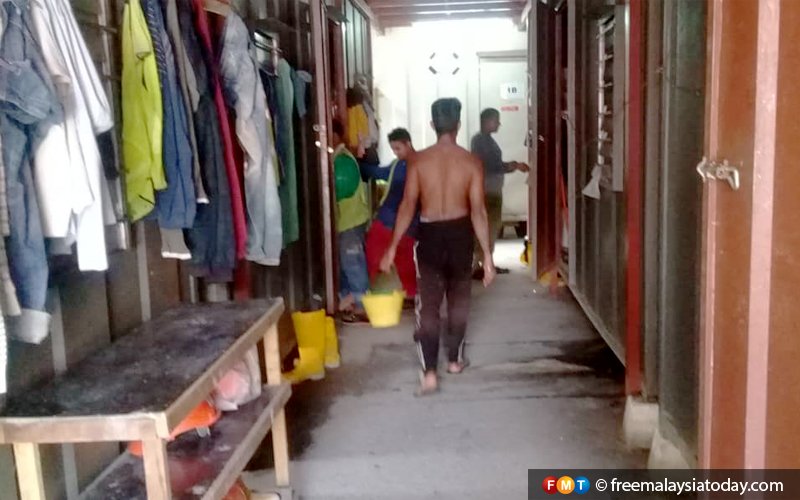
And it seems as though foreign workers are somewhat left to fend for themselves as the govt may not have provided them with food supply. To make matters worse, the embassies were closed during the MCO and this made it difficult for these workers to receive necessary aids from their respective consulates.
Foreign workers were also reportedly afraid to go out of their houses during the MCO as they fear they’d be arrested by the authorities even if they have proper documentations. This may be why they have been relying on Malaysians like their own neighbours or NGOs to supply them with food and other necessities.
Although there are claims that the govt may not have helped them in terms of food supply, we can’t neglect how the govt has helped making it compulsory for employers to get foreign workers tested for Covid-19. In fact, the govt has subsidised the cost to test these workers as well.
But even so, most of the foreign workers who were interviewed claimed that they would eventually leave if they’re no longer needed once their working permit ends.
“I still want to remain in Malaysia as I want to earn a living. However, if Malaysia does not want me, I will go back.” – Sharif, foreign worker, told BERNAMA.
So does this mean we will no longer rely on foreign workers? Well, not really.
Despite all this, Malaysia still needs foreign workers(?)
So Saravanan’s announcement on the freeze on new intake of foreign workers into Malaysia was met with a mixed of reactions from several organisations. Although the announcement was generally supported by these organisations, the Human Resources Ministry was urged to keep this as an option.
“We urge the government to keep the freeze in recruitment as an option. Should the global situation improve with demand for greater output and an increased role for Malaysian manufacturers in the global chain, their labour requirements must be met quickly by allowing direct recruitment.” – Federation of Malaysian Manufacturers (FMM) president, Tan Sri Soh Thian Lai to The Star.
Besides that, MEF executive director, Shamsuddin Bardan, added suggested the govt to allow retrenched foreign workers to be redeployed to sectors needing manpower. And one of these sectors would be the plantation sector. Waitamin, but how will this help the ministry to create jobs for locals??
Well, as it turns out, locals may not be too keen in ALL the jobs that foreign workers normally take up. Although there’s a huge number of locals (1,200 of them to be exact) who have applied to work at the Selayang wet market, this doesn’t mean that they are willing to take up other jobs from other industries.

And this may be why the Malaysian Estate Owners’ Association (MEOA) urged the govt to exempt the freeze on the plantation sector. This is because, according to MEOA secretary, Lim Ban Aik, the industry still needs 500,000 workers and locals are not really keen on working in this sector regardless of the perks it offers.
“The impact in the plantation sector is going to be drastic. There seems to be a reluctance, which is unfathomable as the industry offers good pay and perks.” – Lim to The Star.
As it turns out, the same can be said in the construction sector.
But that’s not all. Earlier we mentioned that the govt has stopped taking in new foreign worker from Bangladesh in 2018 following allegation of malpractices in the recruitment process and high recruitment costs.
Both the Bangladesh and Malaysian govt has since been working together to make the recruitment system less corrupt with hopes that official recruitment can be resumed this year. As a matter of fact, the Bangladesh govt was planning to help its unemployed workers to find overseas employment again. But the recent announcement by the Human Resources Ministry somewhat potong stim all these efforts. :\
At the time of writing, the Human Resources Ministry advised locals not to be too picky when it comes to applying for jobs, in hopes that locals would take up jobs left by foreign workers. Despite that, it seems as though Malaysia may still need to rely on foreign workers on taking up certain jobs like 3D (dirty, dangerous and demeaning) jobs. But only time will tell if the ministry’s effort to reduce the country’s dependency on foreign workers and help locals to be employed again will work.
- 1.2KShares
- Facebook1.2K
- Twitter1
- LinkedIn3
- Email4
- WhatsApp14



